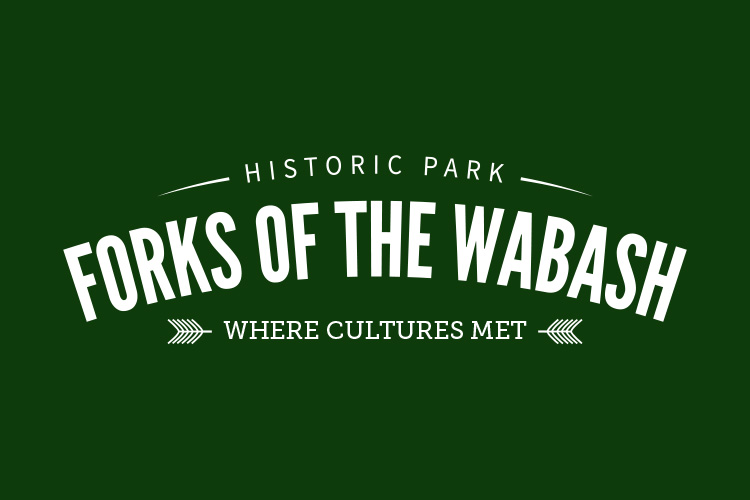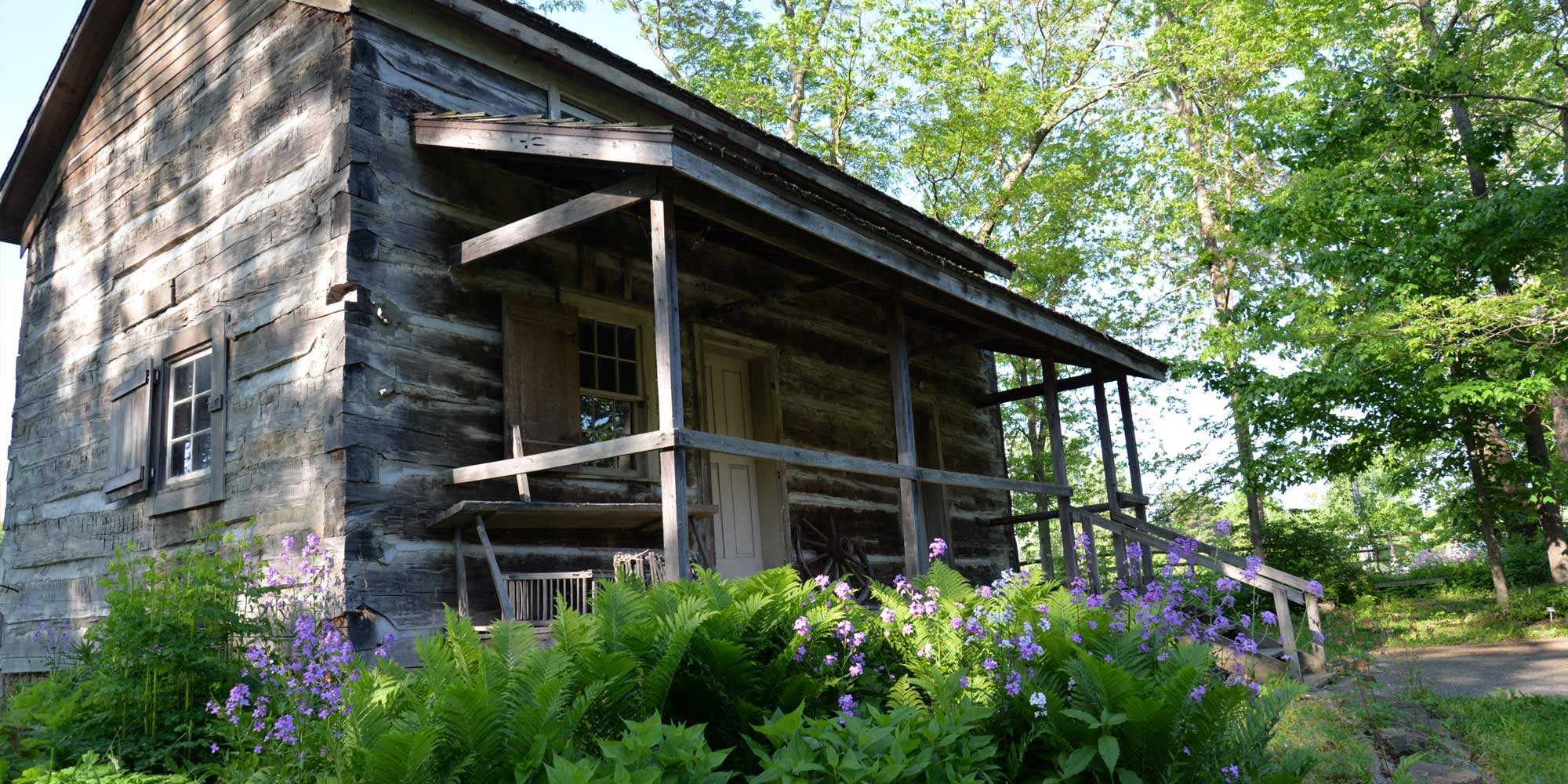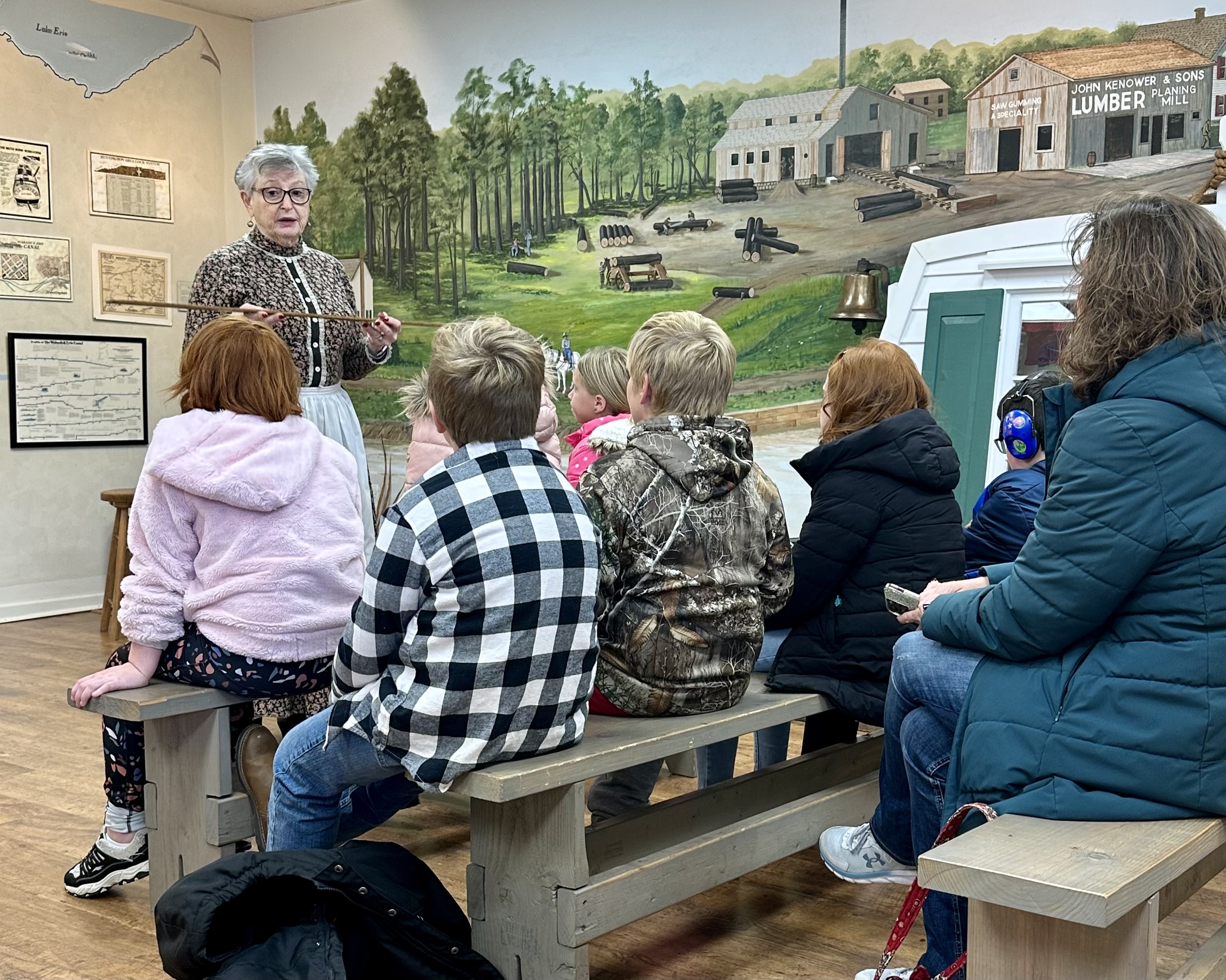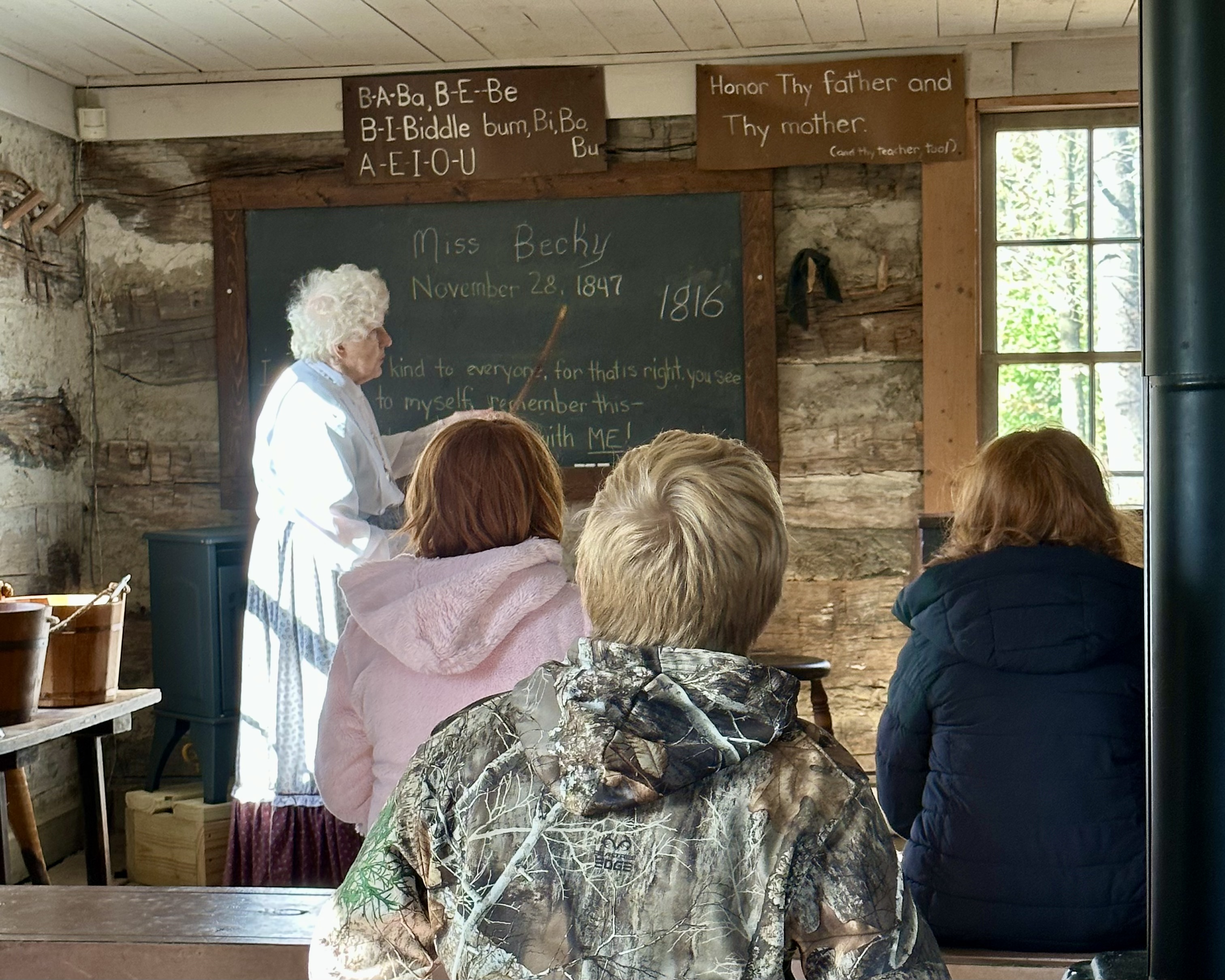A Voice for the Good: Historic Forks of the Wabash
3Rivers is proud to support so many of the non-profit organizations that are committed to making our community a better place to live, work, and play, and we want to help spread the word about the difference they're making in our region. We’ve teamed up with 97.3WMEE to bring you A Voice for the Good, a series in which we feature local organizations on our website in the form of an informative articles as well as on-air segments highlighting the non-profits’ missions.
This article features the Historic Forks of the Wabash, a local non-profit on a mission "to preserve, protect and enhance this geographical site in order to interpret related cultural history."

We talked with Beth Stricker, Tour & Events Coordinator, to learn more about this organization and the work they're doing in our community.
How did Forks of the Wabash come to be? What’s the history/story behind how the organization initially got started?
Of course, like all good stories, it began with someone who cared about a place rooted in history: deep like the roots of the sycamore trees dotting our riverbanks.
In 1943, a local historian named Luke Scheer purchased the Chiefs' House from the last living relatives of Chiefs Lafontaine and Richardville. The home had been rented out for several years, but then sat empty due to a damaged water line.
Jean Gernand, a home economics teacher at Huntington North High School and a budding historian, knew of the Chiefs' House and its historic past and wanted to help restore the home. Under Gernand’s direction (and with Scheer’s permission), the Junior Historical Society began an extensive restoration of the Chiefs' House in March 1977. The Society and its many volunteers provided free labor over their spring and summer vacation from school, and Scheer paid for the materials.

The property, and Huntington’s love for its unique history, began to grow. In 1979, Jim and Carol Shuttleworth donated the Nuck house to the Junior Historical Society. The Board of Zoning Appeals approved moving the log cabin to the northwest corner of 9 and 24 west. By 1987, the Junior Historical Society was able to purchase the Chiefs' house, and the Historic Forks of the Wabash, Inc. was born.
Over the next five years, the Historic Forks of the Wabash restored and developed the property. In 1990, the Historic Forks of the Wabash purchased the Treaty Grounds, and Long Portage land, as well as the Chiefs’ home.
In the early 1990s, Bill and Polly Shriner donated additional property to the Historic Forks of the Wabash, and the Chiefs' House and Nuck House were moved across US 24 to make way for proposed widening of the highway. Work also began on transforming the Riverforks Farm fruit and vegetable stand into a museum.
In June of 1994, the Forks was finally ready for its dedication and Grand Opening in its new location. Guests included the principal chief of the Oklahoma Miami, Chief Floyd Leonard and his wife, Pat; Paul Godfroy, Tribal Council member; and Chief Peconge, interim chief of the Indiana Miami.
What is the official mission of Forks of the Wabash, and how is it currently being put into play?
The official mission of the Historic Forks of the Wabash is "to preserve, protect, enhance, and interpret the unique geographical area known as the Forks of the Wabash." Our commitment is to serve the community by providing visitors with meaningful information about the site and the rich cultural history it represents. We fulfill this mission by hosting private tours and school field trips, where we share the fascinating history of the Miami Native Americans and the early settlers of the area, focusing particularly on the 1840s. Through these educational programs, we aim to connect the past with the present, ensuring that the stories of this significant location continue to resonate with future generations.
How do you see the mission and vision of Forks of the Wabash evolving in the future in the Northeast Indiana community? Where do you see your organization a year from now, or even five years from now?
The future of Forks of the Wabash hinges on the strength and growth of our volunteer community. A year from now, and even five years down the road, our vision is to expand our reach and serve more students by hosting additional school field trips. Unfortunately, due to limited volunteer resources, we had to turn away schools this past spring because we can currently only accommodate three field trips per week. With an increase in volunteers, we could potentially add another day or two to our schedule, allowing us to share our rich history with even more young minds. We encourage anyone considering volunteering to join us—your involvement can make a significant impact on our ability to educate and inspire the next generation.

Are there any exciting new developments, updates, or changes that have recently taken place at Forks of the Wabash?
We’re thrilled to share some exciting developments that enhance the public’s experience at Forks of the Wabash. Last year, we completed a 1,000-foot boardwalk that runs along the historic Wabash & Erie Canal bed, extending our walking trail to the far west end of the property. This addition offers visitors a beautiful and peaceful way to explore the natural surroundings and historical setting. About five and a half years ago, we also constructed a stunning suspension bridge over the river, providing access to Ehler Island, where we’ve added stone walking trails for the public to enjoy. Our trails, covering approximately 2.7 miles, invite community members and visitors alike to immerse themselves in the natural beauty of the Forks, while also reflecting on the historical significance of the land.
In addition to these outdoor enhancements, we were recently awarded a Wabash River Heritage Corridor Fund grant from the Indiana DNR for the rehabilitation of the Chief Richardville House just in time for the new school tour season. Please visit our website to learn more about this initiative.
Could you share a standout story or two that really illustrates the impact Forks of the Wabash and/or its programs has on people in our community?
The Forks of the Wabash hosted over 3,000 local public, private, and homeschool students from 12 Northeast Indiana counties during the last school year, which was an increase of 30% over the previous school year. Our tours are led by volunteer guides and interpreters, all of whom are passionate about the history of the site and provide an outstanding learning experience for attendees. Perhaps the best way to illustrate the impact is to quote some of the recent feedback we’ve received:
“Our guide led our tour group from station to station today and he was an absolute delight. He was friendly and kind and well suited to work with families. He was also knowledgeable and helpful in his answers to the children. The rest of the volunteers were warm and welcoming and obviously passionate about history. We ALL learned new things and genuinely enjoyed our time with each of them. The day was well organized, flowed smoothly, and your volunteers are well spoken and well studied. Thanks for a great day. We would recommend this trip to anyone!”
“You guys do an outstanding job. My students had rave reviews about the field trip. Thanks for all you do to teach students about our history. Keep up the great work and I look forward to bringing future classes!”
“What a wonderful learning experience! I have been on this tour many times with former classes. I love that every time I go, there are different things I learn from the different guides’ expertise. I was so impressed with today’s tour guide. She did a great job breaking the content down for our private tour. This historic site provides great content at each station and I love how it is all wrapped up for a full day of fun learning.”
How can those interested in your services go about getting started or getting in touch?
If you are interested in booking a field trip or a private tour, please email me at tours@forksofthewabash.org or call 260.356.1903. We also offer event space rentals at our facility, which you can learn more about on our website.

Are there other local non-profit organizations that Forks of the Wabash works/partners with to enhance their programs?
We have a strong, ongoing partnership with Boy Scout Troop #130, collaborating on two major annual events held on our property. One of these is the Splash on the Wabash, a recreational river tubing event every July, which brings the community together for a day of fun on the water. The other is The Lost Canal & Haunted Trail, a Halloween-themed event that runs on weekends in October, offering thrills and chills while drawing more visitors to our grounds. These events not only enrich the community experience but also serve as vital fundraising opportunities. Additionally, the Boy Scouts lend their support during our Old-Fashioned Fourth celebration on July 4th, helping to make this patriotic event a memorable experience for all.
Are there opportunities for community members to volunteer at Forks of the Wabash—and if so, how can they go about learning more?
If you are interested in volunteering at the Historic Forks, we would love to have you! Simply email tours@forksofthewabash.org or call 260.356.1903 and get in touch with Beth to join us and enjoy Forks, Fun & Friends! We need tour guides and interpreters as well as grounds care and maintenance assistance, all of which we can train you to do.
In what other ways can community members support Forks of the Wabash—be it through monetary donations, material donations, education, etc.? Do you have an itemized wish list of any kind or utilize options like AmazonSmile to raise funds?
We are always in need of monetary donations. Maintaining historic buildings is a costly undertaking, as well as keeping our 40+ acres and trails in beautiful condition for the public to enjoy.
Online donations are accepted through Zeffy (preferred) and PayPal, which you can find on our website.
If you prefer to write a check, donations can be mailed to:
Historic Forks of the Wabash
3011 West Park Drive
Huntington, IN, 46750
Where can our readers learn more about Forks of the Wabash or about getting involved?
Please check out our website at forksofthewabash.org and like our Facebook page. If you have any additional questions, feel free to call our office at (260) 356-1903 or email tours@forksofthewabash.org.
Is there anything else you’d like our readers to know about Forks of the Wabash?
While we do not offer regularly scheduled business hours, we love to host private tours at your request for individuals or groups of any size! Reach out or visit our website to learn more about the opportunity. We are also one of the most popular walking trails in Huntington County—come explore our property to get a taste of what we have to offer.
Interested in featuring your non-profit on our website and on 97.3WMEE’s A Voice for the Good? Text "VOICE" to 46862! Please note that this may lead you to incur standard text messaging rates or other applicable charges consistent with your wireless carrier/mobile phone plan.
